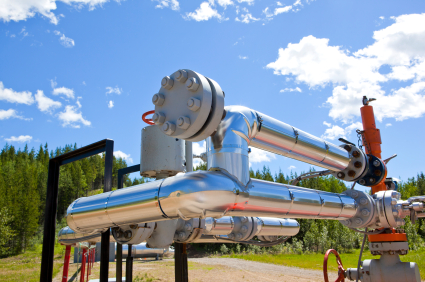
Fracking holds great promise as a source of U.S. energy.
Use of horizontal drilling and hydraulic fracturing to produce natural gas from shale formations – so-called fracking – has provoked debate among politicians all over the world. It has also raised scores of challenging legal issues that are being litigated in numerous agencies and courts.
The public is divided on fracking. Some people view it as a practice that is so hazardous to public health and the environment that it should be banned. Others view it as a potential source of an economic boom so large that it should be encouraged. I am in the second group, but no matter what group you belong to it is undeniable how the potential beneficial effects of fracking have created incredibly high stakes to this energy policy debate.
President Obama’s State of the Union address provides a good starting point for seeing the impressive results shale gas fracking has achieved in the six years since this practice began. The President claimed credit for presiding over the largest reduction in oil imports in modern history and for achieving the lowest level of dependence on oil imports in sixteen years. He attributed that remarkable performance partly to increased oil production from tight sands in the Dakotas but primarily to the massive increase in gas production that has resulted from fracking.
U.S. natural gas reserves have increased by over 65% over the period 2000-2009, and fracking reserves certainly have contributed to this growth. The Energy Information Administration (EIA) expects this trend to continue, as it now predicts that the United States will have enough gas to satisfy domestic demand for a century and that the United States will soon have a surplus sufficient to begin exporting gas to Asia.
Fracking has already allowed the United States to replace 10% of the coal it has traditionally used to generate electricity with cleaner burning natural gas, and the EIA predicts that trend to continue for many years, with significant resulting environmental benefits. As a result of fracking, gas costs less than one-third of the price of oil in the United States.
Fracking has also already produced large numbers of new jobs and major increases in prosperity in Pennsylvania. Ohio has the potential to add many thousands of jobs and to produce more gas than Kuwait in just a few more years as fracking spreads to new shale formations. In his State of the Union address, President Obama predicted that fracking would produce 600,000 new jobs nationwide.
The potential benefits of fracking are not limited to the United States. EIA has identified 48 shale gas formations in 32 countries that have the potential to yield new gas supplies equivalent to those that have nearly doubled U.S. gas reserves in less than a decade. The International Energy Agency predicts that fracking will reduce the price of gas in Europe and Asia dramatically and that it will increase global supplies of cheap, relatively clean gas to such an extent that gas will replace coal as the dominant source of energy in the world by 2030.
The Baker Institute at Rice has published a series of reports that outline some of the geopolitical effects of fracking. They include elimination of Iran’s source of leverage over India and China, a large reduction in the importance of the Middle East as a source of energy, and elimination of Russia’s gas monopoly in Europe.
The potential beneficial effects of fracking are so large that I expect to remain a proponent of fracking, albeit with strict regulation to reduce the risks it poses to health and the environment.




